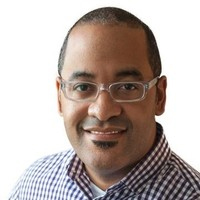The Printing Museum
"We were woefully behind the times…."

Founded in 1979 by four Houston-area printers with a passion for preserving their vast collections and sharing them with the community, The Printing Museum is a hidden gem and one of only four niche museums in the U.S. dedicated to the history, art and technology of printing. Located in a former engraver’s office in what had been Houston’s printing district, the museum features permanent galleries, rotating exhibitions, workshops, and an increasing emphasis on instructional programs. The museum has over 10,000 items in its permanent collection, with displays spanning the history of the printed communications that changed the world: some of the earliest printed documents dating from the 8th Century; replicas of the Gutenberg press and Bible; rare books from the 15th – 18th Centuries; 19th-Century steam-powered printing presses; and histories of how newspaper layout and design have changed over time.
With such a heavy emphasis of ink-on-paper, the museum had been late to embrace advances in technology. “We had been slow to modernize over our first 40 years,” explains Executive Director Brian Hodge, describing how the museum’s manual data entry had become a slow, gargantuan task. “We were generating lots of accounting details but the Board was getting lost in the details and couldn’t see the big picture. We needed to know where we stood financially, up-to-the-minute and not where we were three months ago. We were woefully behind the times.”
Your Part-Time Controller began working with The Printing Museum at a critical time when the organization was seeking ways to double its foot traffic and sales, move into a purpose-built facility and handle the increased volume of accounting information that would be needed to make the sound decisions that such a move would entail. “We would have been overwhelmed. It was very challenging. YPTC came along at a necessary time to help us understand our needs,” he adds.
YPTC personnel began to automate the museum’s accounting procedures, use digital resources as much as possible, and streamline the presentations to the Board of Directors. “YPTC has been updating and modernizing our processes to generate more quickly the information that our Board and our funders want to know,” he says.
“It’s been great to have someone different who’s more acquainted with the latest, best practices,” Hodge says.





